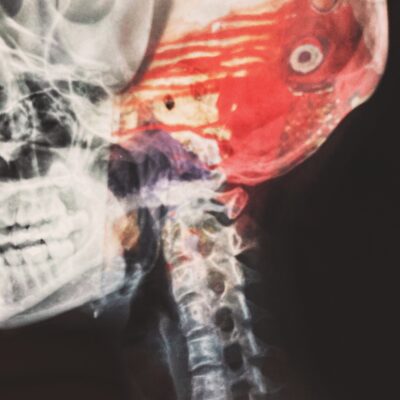
If you are considering bringing a TBI case, take a look at this blog post about protecting your credibility, as well as this one about avoiding social media.
Traumatic Brain Injury - Cincinnati
Traumatic brain injuries are serious. TBI change the lives of the person who experienced injury as well as the loved ones who care for that person.
Often, a person who cares for a loved one with TBI feels like life is spinning out of control and no one quite understands. That's why you need a lawyer with experience who knows what she is doing. You need someone who can take control of the litigation, so you can focus on helping your loved one heal.
How Can This Happen?
A person can suffer a traumatic brain injury even without suffering a “major accident.” This is particularly true of older adults, but anyone could suffer a traumatic brain injury even with what appears to be a small impact.
According to the National Institute of Health, traumatic brain injuries are often caused by:
- Falls (for people over 65)
- Motor vehicle accidents
- Sports injuries
- Physical assault
These are common causes, but they are not the only causes. Any time there is an impact to the head or even a jolt, when the head moves back and forth quickly, there can be a traumatic brain injury.

How Do I Know if Someone I Love Has TBI?
As an onlooker, you may be able to realize that something is wrong before the injured person does. If someone takes a blow to the head or has a jolt that causes the head to jerk around, keep an eye out for these symptoms.
Some common symptoms of mild Traumatic Brain Injury are:
- A brief loss of consciousness in some cases. However, many people with mild TBI remain conscious after the injury.
- Headache
- Confusion
- Lightheadedness
- Blurred vision or tired eyes
- Ringing in the ears
- Bad taste in the mouth
- Fatigue
- A change in sleep patterns
- Behavioral or mood changes
- Trouble with memory, concentration, attention, or thinking

In addition, some of the common symptoms of moderate to severe TBI are:
- A headache that gets worse or does not go away
- Vomiting
- Convulsions or seizures
- Not being able to wake up from sleep
- Larger than normal pupil (dark center) of one or both eyes.
- Slurred speech
- Weakness or numbness in the arms and legs
- Loss of coordination
- Confusion, restlessness, or agitation
If you notice these symptoms in yourself or others after any impact to the head, contact a medical provider immediately.
What is the difference a “Closed Head” Traumatic Brain Injury and a “Penetrating” Traumatic Brain Injury?
Closed Head Injury
The National Institute of Health categorizes traumatic brain injuries into one of two categories. The first category is a closed head injury. An injury is “closed head” if the skull remains intact. These injuries include concussion, brain bleeds, swelling of the brain, and other trauma.
Penetrating Head Injury
The second category is the Closed Head Injury. An injury is categorized as “Penetrating” when the skull is cracked (fractured) or broken. These types of injuries generally occur when the head hits the ground or a foreign object hits the head, like in an industrial accident.

How Can Traumatic Brain Injuries be Prevented

There is no sure-fire way to prevent traumatic brain injuries. However, you can make your environment (and encourage your loved ones to make their environment) safe.
- Always wear your seatbelt. Put small children in the right size car seat.
- Wear a helmet while riding a bicycle, skateboarding, or motorcycle.
- Pay attention to your surroundings. Don’t cross the street without making sure it is safe.
- If you or a parent need a cane or walker, use them.
What if Someone I Love Gets Hurt Anyway?
First, if you suspect that someone has suffered a traumatic brain injury, call a medical provider immediately. Untreated brain injuries can become worse over time.
Next, call us to get the money you and/or your injured loved one will need going forward. TBIs can cause the injured person to suffer:
- Lost wages
- Lost earning capacity
- Past medical bills
- Future medical bills
- Pain and suffering.
The person who cares for the injured loved one is also entitled to:
- Loss of consortium and society
- Compensation for the time spent providing treatment.
